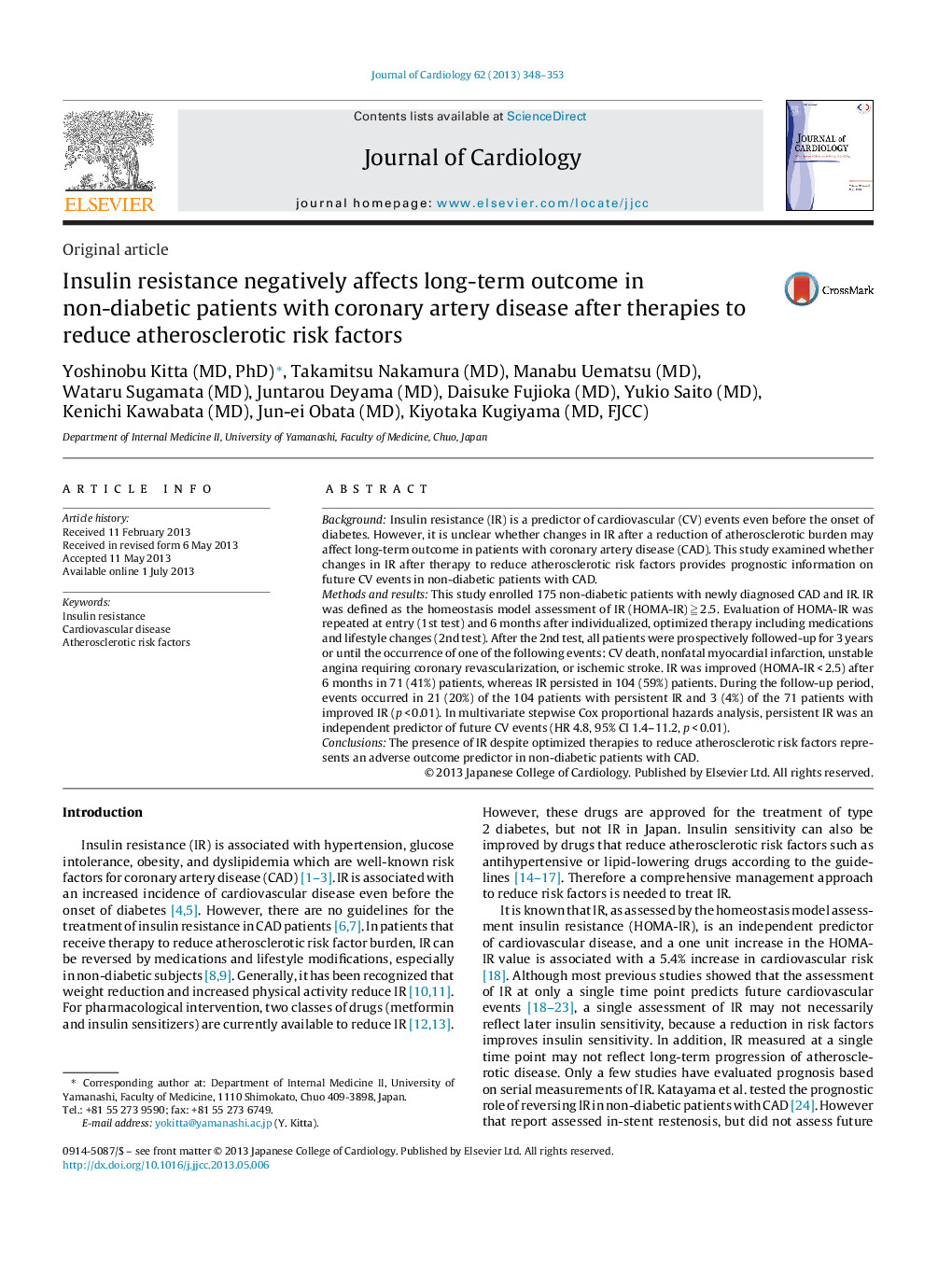| Article ID | Journal | Published Year | Pages | File Type |
|---|---|---|---|---|
| 2963098 | Journal of Cardiology | 2013 | 6 Pages |
BackgroundInsulin resistance (IR) is a predictor of cardiovascular (CV) events even before the onset of diabetes. However, it is unclear whether changes in IR after a reduction of atherosclerotic burden may affect long-term outcome in patients with coronary artery disease (CAD). This study examined whether changes in IR after therapy to reduce atherosclerotic risk factors provides prognostic information on future CV events in non-diabetic patients with CAD.Methods and resultsThis study enrolled 175 non-diabetic patients with newly diagnosed CAD and IR. IR was defined as the homeostasis model assessment of IR (HOMA-IR) ≧ 2.5. Evaluation of HOMA-IR was repeated at entry (1st test) and 6 months after individualized, optimized therapy including medications and lifestyle changes (2nd test). After the 2nd test, all patients were prospectively followed-up for 3 years or until the occurrence of one of the following events: CV death, nonfatal myocardial infarction, unstable angina requiring coronary revascularization, or ischemic stroke. IR was improved (HOMA-IR < 2.5) after 6 months in 71 (41%) patients, whereas IR persisted in 104 (59%) patients. During the follow-up period, events occurred in 21 (20%) of the 104 patients with persistent IR and 3 (4%) of the 71 patients with improved IR (p < 0.01). In multivariate stepwise Cox proportional hazards analysis, persistent IR was an independent predictor of future CV events (HR 4.8, 95% CI 1.4–11.2, p < 0.01).ConclusionsThe presence of IR despite optimized therapies to reduce atherosclerotic risk factors represents an adverse outcome predictor in non-diabetic patients with CAD.
